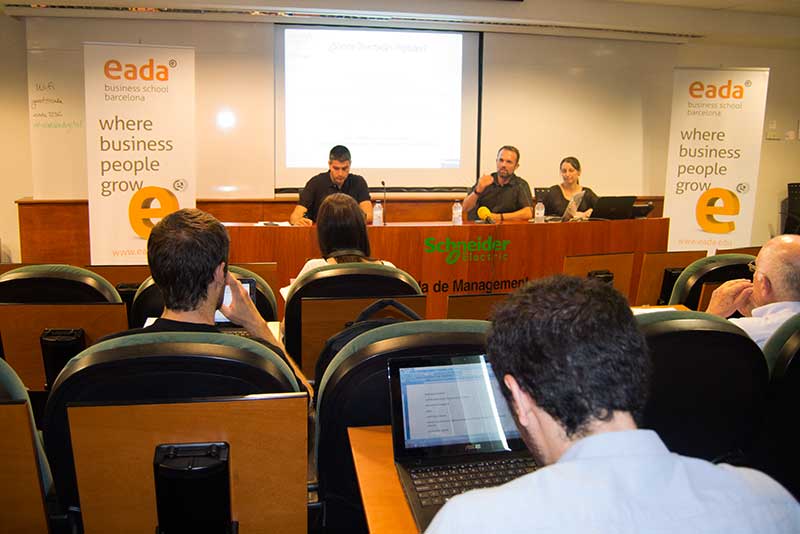EADA, RocaSalvatella and Penteo analyze the digital skills of CEOs in a joint report
Company digitization: Managers have a high level of digital competencies but do not apply them strategically in the organization
Do we use digital technologies as well as we say we do? 44% of Spanish executives declare that they have a high level of digital competencies and 38% say they have a medium level. Executives’ perceptions concerning their skills are higher than what they are in actual fact –the average evaluation of global skills being 7.7 as opposed to 6.8 in the competency by competency analysis, with more than relevant differences between the different competencies.
The level of knowhow and communication is good but as we move away from our zone of immediate control things get more complicated. We know how and when to use competencies on a personal level (acquired competencies) but we lack some of the skills for applying them to team work, to the company (strategy) and to our relationship with the customer. We barely pass when it comes to strategic vision, understood as the capacity to comprehend the digital phenomenon and incorporate it to the strategy and the organisation’s projects. And what’s more, we fail in customer orientation.
These are some of the main findings of the study Nivel digital directivo (The digital level of managers) presented by EADA, RocaSalvatella and Penteo. The study is based on a survey of over 600 managers from different sectors and companies of different sizes.

Fromn left to right, Gerard Vélez (RocaSalvatella), Lluís Rosés (EADA) and Judith Ferrau (Penteo) during the presentation of the joint report about managers digital level.
Company digitization: Major weaknesses
The report shows a low level of usage of digital networks and tools (4.8 on a scale from 1 to 10) so as to understand, know how to interact and satisfy the needs of our customers in digital contexts. And. Although to a lesser extent, what also stands out is the low strategic vision and the capacity to understand the digital phenomenon and incorporate it to the strategic orientation of the organisation’s projects (5.5) and digital environments (6.2).
The report found that companies do not make intensive use of information technologies as a competitive advantage tool. Only 36% of executives perceive that their company makes extensive or very extensive use of technology as a competitive tool as opposed to 64% who think the intensity is medium or low (36% and 26% respectively), once again pointing to the gap that exists between the personal and organisational spheres and reflecting the state companies find themselves in, i.e. they must transform themselves in the digital sphere in order to succeed in the new scenario where digital transformation is not only technological but social, cultural and economic. It is a matter of vision, strategy, organisational culture and redesigning processes which will split companies into digital or non digital.
Organisations to a large extent continue to regard digital as equivalent to digital marketing and hence it is this functional area that is leadering the change (32%) followed by Business & Technology (27%).
In short, the digital transformation of Spanish executives reveals important gaps such as strategic vision, web working and customer orientation, which need to be overcome in order to successfully address the challenges of digital transformation in the networks era.
